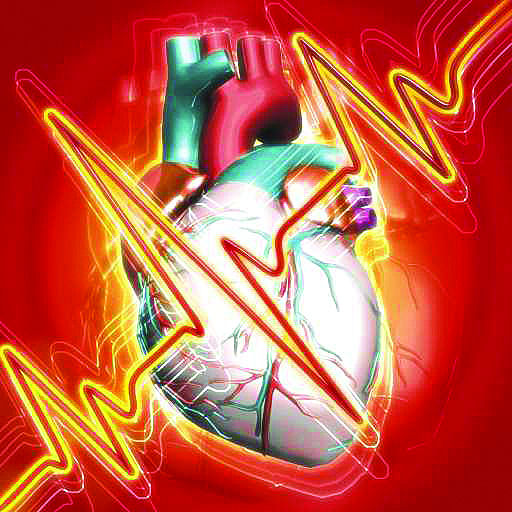HARLINGEN – There are many different kinds of warning signs posted along streets, roads and highways. No passing zone, railroad crossing, merging traffic, divided highway, school zone, animal crossing, construc-tion ahead, curves and corners, narrow bridge – the list goes on. Similar to these recognizable yellow and black traffic signs are warning signs for heart attacks. Becoming familiar with them could save your life, just like paying atten-tion to warning signs when you are driving.
A heart attack occurs when there is a blockage in the flow of blood in an artery that leads to the heart. Part of the heart muscle is then damaged or destroyed because it does not receive enough oxy-gen. More than one mil-lion Americans have a heart attack, also known as a myocardial infarction, every year. The key to surviving a heart attack is knowing the warning signs so you can get emergency medical treatment.
If you think you are hav-ing a heart attack, call 9-1-1 immediately for an am-bulance to take you to the hospital. Do not try to drive yourself. Some of the early warning signs of a heart attack include:
• Chest pain or dis-comfort that lasts longer than a few minutes or goes away and then comes back. This pain may be severe and feel like un-comfortable pressure, squeezing or fullness that is not relieved by changing positions or resting.
• Pain that extends to other areas of the body, such as the shoulder, arm, back, neck, jaw or stom-ach.
• Shortness of breath as well as light-headedness, sweating, fatigue, fainting, nausea or vomiting.
It is important to re-member that not all peo-ple who have heart attacks experience the same symptoms or to the same degree. The warning signs of a heart attack for women may be slightly different than those for men. While both com-monly experience chest pain or discomfort, women may be more likely to have shortness of breath, nausea and vomit-ing, and back or jaw pain. Some people may not have any symptoms at all, espe-cially diabetics because that chronic condition can affect the nerves.
Warning signs of a heart attack can appear at any time, at rest or in motion, and at work or play. A heart attack may strike suddenly, but most people have warning signs and symptoms hours, days or weeks beforehand. One of the earliest warning signs of an impending heart attack is chest pain, or angina, that occurs re-peatedly because of exer-tion and is then eased by rest.
Early intervention for a heart attack is imperative to reduce damage to heart muscle. Clot-busting drugs can be administered and special procedures can be done to open up blood vessels. However, treat-ment works best when administered within an hour of the first symptoms of a heart attack. Survival will ultimately depend on how rapidly you receive treatment, how much damage there is to the heart, and the location of the damage. For more information about early warning signs of heart attack, talk with your doc-tor or call 1-866-608-2273 for a free referral to a car-diologist near you. And, to learn more about heart disease and cardiovascular surgery, reserve your space at the Valley Baptist “Dinner with the Doc” on Monday, February 23, 2016 at that same number. To “know your numbers,” reserve your spot at our “Healthy Heart” morning on February 20 for important screenings.
Below find some additional Valley Baptist phone numbers for heart health resources:
Heart and Vascular (cardiac testing) 389-6281
Outpatient Services Registration 389-5186
Community Reference Lab (VBMC-H location) 389-3800
Diabetes Education Center 389-1119
Cardio-Pulmonary Rehabilitation 389-1116
Surgical and Medical Weight Loss Program 389-6896
There is no time like the present to take care of your heart. Take the Heart Health Profiler to quantify your risk factors, then know that Valley Baptist is there for you should you need care.
Go to www.valleybaptist.net/HealthyHearts to take your Cardiac Risk Assessments today.





